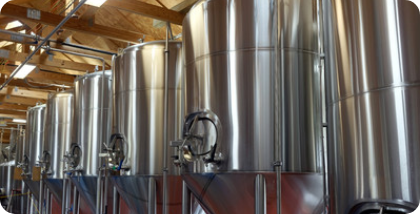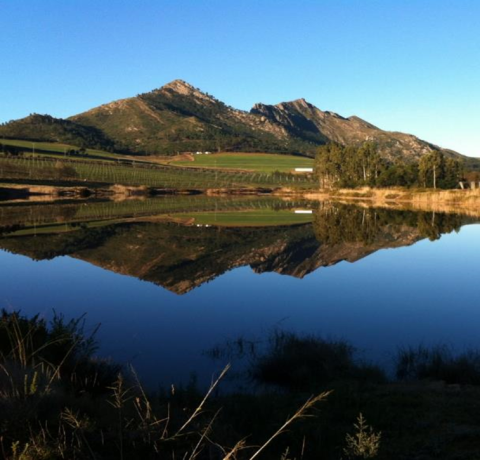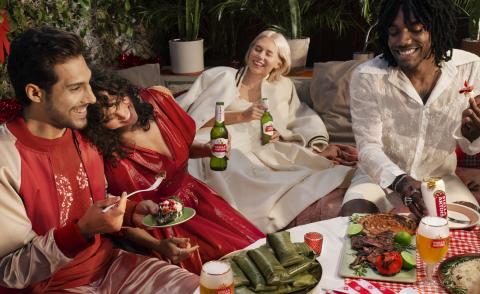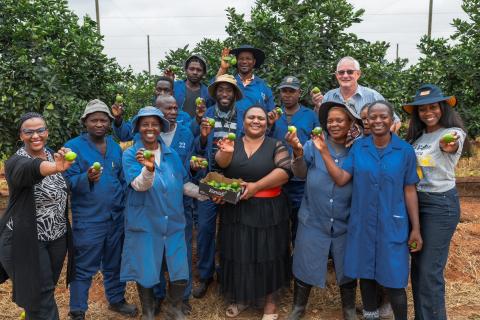
SA Beverages group net producer revenue of R40.5-billion included 6% organic growth
EBITA of R10.3-billion included 7% organic growth
EBITA margin improved to 25.4%
Final dividend of R129.7-million for empowerment programme Zenzele
Lager volumes level at 27.2-million hl
Market share gains made in the highly competitive beer business
Soft drinks division volumes level 18.3-million hl
(Johannesburg, 22 May 2014):
The South African Breweries (SAB) delivered strong gains in revenue and operating profit for the year to end March 2014 as the continued focus on market facing investments and retail execution delivered positive results.
The performance was achieved in the face of a challenging trading period, with sluggish economic growth, ongoing strong competition, rising costs due to the continued weakness of the rand and the timing of Easter. In addition, excise on beer increased by 8% this year, following on from the 7.5% increase in 2013 excise payments.
As a result, volume growth in both the beer and soft drinks portfolios was subdued. A strong focus on cost containment helped fund investment in market facing operations, and there were ongoing controls on working capital and capital expenditure.
SA Beverage’s black economic empowerment scheme, Zenzele, benefited from the stronger performance, with the company declaring an interim dividend of R129.7-million. This is the eighth dividend declared since the programme was launched in 2010, bringing the total dividends declared to date to R464.6million.
SA Beverages is made up of the beer business, soft drinks division ABI, Appletiser and a 29% stake in Distell.
SA Beverages group net producer revenue grew to R40.5-billion from R38.1-billion previously (including 6% organic growth).
EBITA grew to R10.3-billion from R9.5-billion previously (including 7% organic growth) and the EBITA margin improved 40 basis points to 25.4%.
SAB Executive Chairman Norman Adami said: “Both our beer and soft drinks businesses have performed well in a highly volatile external environment where we have seen subdued consumer demand as well as a weakening rand. Our strategy has allowed us to manage these factors and established a clear foundation for future profitable growth.”
SAB Beer business
Lager volumes were level for the full year at 27.2-million hectolitres (hl). Despite strong competition, there were good gains in beer market share, as well as growing the share of the overall alcohol market. Successful brand campaigns, pack and brand innovation supported by effective execution in trade helped deliver this performance.
Key achievements included:
- In the local premium segment, Castle Lite continued to grow volumes supported by packaging innovation centred on its “Extra Cold” positioning, while Castle Milk Stout also performed well;
- Among the mainstream power brands, Castle posted good gains while Carling Black Label stabilised as it continued its recovery path;
- The repositioning of SAB’s three global brands – Grolsch, Miller Genuine Draft and Peroni – continued to gain traction;
- The introduction of a number of innovations, including Flying Fish which is the first flavoured beer in the premium segment in South Africa;
- Brand innovation was a key focus area, with a number of new packaging formats, merchandising and promotional programmes introduced.
Customer service remained a targeted focus area to support strong retail execution, with the number of people servicing customers increasing and the continued enhancement of the customer interaction centre.
SAB’s focus on tackling alcohol abuse remained in place, with key highlights including launching the next phase of the campaign to curb underage drinking under the You Decide programme with a 13 part reality TV show. In addition, Kickstart, the entrepreneurship programme which has created more than 27 000 jobs over the past two decades, was chosen as a best practice programmes by Harvard Business School.
Soft drinks business
Soft drinks volumes were also level at 18, 3-million hl. The continued implementation of the growth strategy resulted in improved market penetration and customer service levels in the face of growing competition.
Strong growth was achieved in the local and traditional channels in PET packs, where increased competition led to declines in returnable glass bottle sales. The stills drinks portfolio continued to show growth with strong contributions from the water brands and the Play brand.
In line with its strategy, our soft drinks division, ABI, continued to drive channel and market penetration particularly in the local and traditional trade through its increased direct store delivery approach. This resulted in the continued strong growth of the 2l PET pack in particular.
Other key highlights included:
- Main market penetration was a key focus, resulting in the growth of new outlets as well as the transformation of existing outlets;
- ABI invested in local entrepreneurs, called market logistics partners, to deliver its products, allowing for greater flexibility and the ability to tailor make delivery services;
- The ongoing transformation of the supply chain, including the implementation of new technology and improved processes, resulted in elevated customer service, reliability, responsiveness and drove significant productivity as well as increased demand fulfilment;
- Targeted investment in coolers continued, ensuring a wider footprint of cold drink offerings for consumers.
Appletiser’s brand premiumisation strategy continued to accelerate profit growth with operating margins improving despite a decline in volumes. Net price gains combined with an improved mix, supported by the launch of slender cans, grew gross margins while fixed cost reductions delivered sustainable improvements.
Other Beverage Business
Driven by increased volumes, our associate Distell reported double digit EBITA growth on an organic, constant currency basis, after adjusting for the one-off excise charge included in the prior year’s results.
Full Year dividend of R129.7-million declared for Zenzele empowerment deal
SA Beverages’ broad-based black economic empowerment transaction, SAB Zenzele, continued to deliver real, tangible benefits for shareholders with the payment of dividends from the first year.
Based on the full year performance, the SAB Board has paid a dividend of R129.7-million, a 4% increase from R124.6-million paid for the same period last year in respect of the shares held by the SAB Foundation, SAB Zenzele Employee Trust and SAB Zenzele Holdings Limited. The dividend means that a total of R464.6-million has been paid out to beneficiaries since the transaction was launched in 2010.



